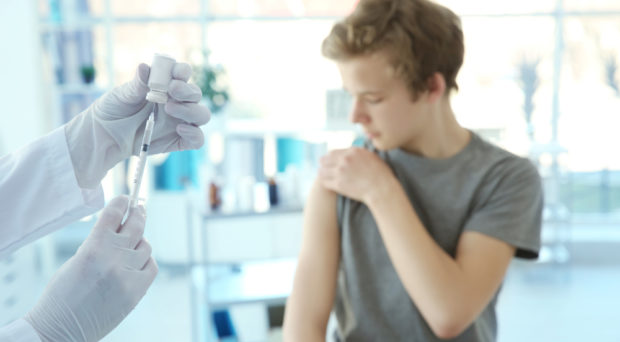
For years, scientists have tried to find ways to develop vaccines not only to combat “classic” vaccine-preventable diseases such as measles or polio, but also chronic conditions such as malignant tumors.
These efforts were successful in 2006 when a new vaccine developed to fight cancer received market authorization. Vaccination against human papillomavirus (HPV) targets a sexually transmitted infection responsible for cervical cancer.
This malignancy places a significant burden of disease on women worldwide. Consequently, the World Health Organization recommends vaccinating all girls against HPV, and many countries have introduced routine HPV vaccination for females into their national immunization programs.
But could the vaccine also be beneficial for boys? In males, HPV causes malignant tumors of the anus and penis, and the virus is suspected to be involved in the pathogenesis of a rising number of head and neck cancers in both genders. The two vaccines on the market received approval for the prevention of HPV-related tumors in males in 2009 and 2016, respectively.
In HPV-naive participants (those who were not infected prior to vaccination), efficacy is clearly higher (up to 96% against infections and 76% against precursor lesions).
While systematic reviews on the efficacy and safety of HPV vaccination in females already exist, to date no such systematic assessment has been published for males. Therefore, we systematically searched major bibliographic databases for all studies published so far on this issue.
We identified seven studies (four randomized and three non-randomized trials) which reported data on a total of 5,294 study participants. The studies showed that vaccine efficacy against persisting HPV infections and high-grade precursor lesions of anal cancer is only moderate (46.9% and 61.9%, respectively) when it was not considered in the data analysis whether or not study participants were already infected by HPV prior to vaccination.
However, In HPV-naive participants (those who were not infected prior to vaccination), efficacy is clearly higher (up to 96% against infections and 76% against precursor lesions).
As in previous studies in women, these data show that vaccination against HPV is only highly effective when given before one is infected by the virus (i.e. before sexual debut). Two of the studies in our review reported on severe adverse events following immunization. Rates of adverse events were very low (<1%) and did not differ between vaccinated and placebo groups. None of the adverse events were judged to be vaccine-related.
Taken together, although the evidence is limited due to the small number of studies, we concluded that vaccinating boys before the onset of sexual activity is a powerful and safe measure to prevent HPV infection and HPV-related precancerous lesions.
Beyond scientific impact, our work had direct consequences for the vaccination schedule in Germany. The results of our systematic review were used by the German Standing Committee on Vaccination (STIKO) to decide on a recommendation for HPV vaccination of boys which was published in June 2018. In Germany, vaccination against HPV is now recommended for all boys and girls aged 9–14 years.
One Comment